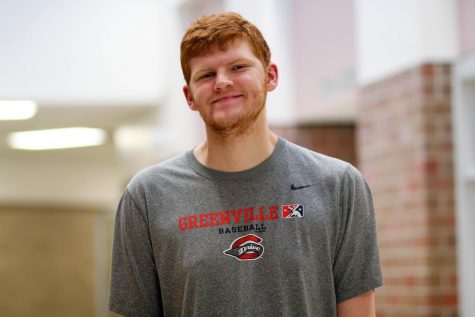Teachers Need to be Impartial in the Social Media Age
February 28, 2018
Teachers. Social media. Politics. What could go wrong, right?
In this age of technology and one-to-one laptops, teachers have been able to utilize different methods of online communicating such as Google Classroom and Twitter. When utilized properly, these resources can better communicate class updates and assignments. Educators have only recently started integrating this technology in the classroom so there are few guidelines on how to regulate it.
Teacher’s Twitter accounts should be used to disseminate class information and encourage students’ performances, but they should never be a platform to espouse their partisan or biased political views, especially if saying the same statements in their classroom would not be allowed.
Now this is not to say teachers cannot have other non-school-related social media accounts to express political views or that all teachers are crossing the line with their polarizing beliefs. A vast majority of educators at Millard West do a stand-up job of managing their social media accounts in a professional way, but a select few are on a slippery slope.
When educators post political viewpoints on social media accounts where current students follow, interact, and classroom-related material is shared, he/she is effectively speaking on behalf of Millard West. And because teachers are authority figures, some are likely influencing opinions and potentially silencing opposing viewpoints.
Principal Greg Tiemann said if teachers are using social media platforms to communicate, put assignments online, and are encouraging students to follow them on Twitter, then he considers it their school page.
“If you want to have your personal views on there, then put a personal site out there that you are speaking as a private citizen,” Tiemann said.
Millard’s current policy regarding controversial material for teachers is: “The issue should provide the student competent instruction within various and/or conflicting points of view can be presented in an atmosphere protected from bias and prejudice” and “the issue should not be presented to promote the indoctrination of beliefs whether they be political, social, economic or religious.”
This is an excellent policy if followed, but the problem is some high school educators are blurring the lines on being impartial on social media.
For instance, say there is a teacher who has tweeted something like “the recent government shutdown was 100 percent Republicans fault” in response to students asking questions on the issue. This is clearly the teachers political opinion and not based on fact, since he/she should know that any bill passed in the Senate needs at least 60 votes and Senate Republicans only occupy 51 seats.
How will students, who may disagree in class might react when it is discussion time? If students disagree with their teachers’ political positions, will he/she give them a lesser grade because of it?
Most students might shy away from voicing their opinions or go along with the teacher fearing possible retribution. When this happens, it can create an echo chamber in the class.
“I don’t want a student to ever be afraid to share their view in your class because I don’t want them to feel like if they share their view they’re going to get consequences,” Tiemann added.
This is especially dangerous when a teacher can take the stance like the one above and say that they are 100 percent correct. That means no other answer is logical or should be accepted or respected. When someone in a position of authority abuses the power, it should not be taken lightly.
“Biased tweets and other forms of social media should not be allowed especially when it’s clear that they feel their opinion is ‘how it should be’,” senior Caleb Homolka said. “It’s very influential towards kids especially with teachers that are loved by many students.”
When a teacher retweets a march or walkout post about guns then they are making their feelings known on the issue. That retweet could help create a disturbance and encourage students to disobey administrators which is unacceptable.
Any tweets or posts made on school accounts should give his/her students a reasonable expectation that everything he/she posts is based on facts, not opinions.
Plus, a retweet or like is tantamount to an endorsement of its contents.
It would be best for teachers to leave their political views at the electronic door and be neutral when they are on a social media account or platform where they post classroom information and interact with students.
That shouldn’t be too much to ask.






